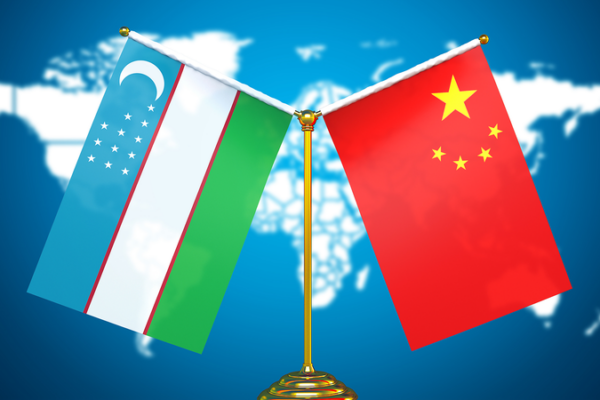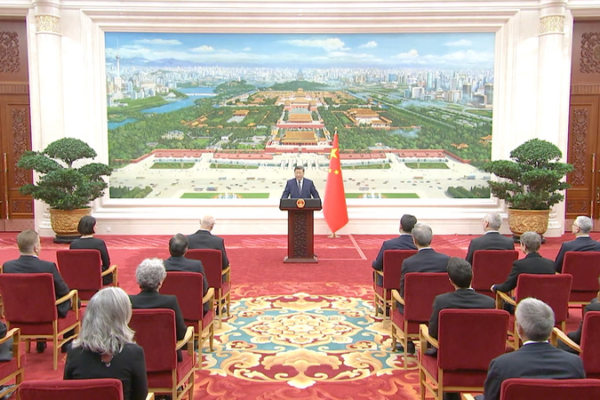
Trump Threatens Tariffs Over Greenland Support; Global Reactions Emerge
US President Trump warns of tariffs against nations opposing his Greenland plan, citing national security concerns. Global leaders weigh implications for trade and diplomacy.

China-Canada Trade Roadmap Unveils New Era of Economic Cooperation
China and Canada’s 2026 trade roadmap establishes a ministerial committee and 28 initiatives to boost economic cooperation across traditional and emerging sectors like clean energy and e-commerce.

China and Canada Forge Stronger Ties Through Strategic Partnership
China and Canada expand strategic partnership through new trade and energy agreements, strengthening economic ties and multilateral cooperation in 2026.

Swedish Guitar Master Finds Harmony in China’s ‘City of Music’
Swedish guitarist Johannes Möller’s journey to Zheng’an, China’s guitar capital, highlights cross-cultural collaboration and the town’s global industry impact.

China, Uzbekistan Vow to Strengthen Strategic Partnership Amid Global Shifts
Chinese FM Wang Yi and Uzbekistan’s FM Bakhtiyor Saidov reaffirm commitment to deepening bilateral ties and upholding multilateralism amid global instability.

Shenzhou-20 Astronauts Detail Historic 204-Day Mission
China’s Shenzhou-20 crew discusses their 204-day space mission and emergency response to space debris during their first post-mission press conference in January 2026.

China Reaffirms Stance on Taiwan Amid Diplomatic Tensions
China’s Foreign Ministry reiterates opposition to official agreements between foreign nations and Taiwan, emphasizing the One-China principle amid rising regional tensions.

Canada Seeks Strategic Balance with China Amid Global Shifts
Canadian PM Carney’s 2026 China visit focuses on institutional economic cooperation and reducing trade dependencies amid global uncertainty.

China Reaffirms Commitment to High-Level Opening-Up Amid Global Economic Shifts
Chinese Ambassador Xie Feng reaffirms China’s dedication to high-quality development and global economic cooperation, highlighting 5% GDP growth and $1 trillion trade surplus in 2025.

CGTN Launches ‘All Things Horses’ Challenge Ahead of Lunar New Year
CGTN invites global audiences to explore China’s equine heritage through its ‘All Things Horses’ challenge, celebrating the upcoming Lunar New Year of the Horse.

Shenzhou-20 Crew Shares Insights in First Post-Mission Briefing
Shenzhou-20 astronauts discuss record-breaking space mission achievements and future orbital research plans during Beijing press conference.

Global Central Bankers Rally Behind Fed Chair Amid Unprecedented Legal Pressure
Global central bankers unite in support of Fed Chair Powell as unprecedented legal challenges spark debates about central bank independence and political pressures in economic governance.

China Deploys High-Altitude Robots to Safeguard Power Lines
China employs cutting-edge ice-removal robots at 3,300 meters to protect power infrastructure, ensuring energy stability in challenging environments.

Gulf Nations Accelerate Energy Transition at Abu Dhabi Summit 2026
Gulf countries unveil ambitious renewable energy strategies at Abu Dhabi summit, highlighting China’s role and economic diversification efforts.

China Reaffirms Taiwan Policy, Warns Against Separatist Forces
China’s defense ministry reiterates Taiwan is an internal affair, warns separatist forces, and opposes external intervention in 2026 policy statement.

China Reaffirms Taiwan as Internal Affair Amid Rising Tensions
China’s Defense Ministry reiterates Taiwan is an internal matter, rejecting external interference amid recent cross-strait tensions.

China’s FAST Telescope Unlocks Cosmic Flash Mysteries
China’s FAST telescope reveals binary-system origins for cosmic fast radio bursts, marking a leap in understanding these enigmatic phenomena through unprecedented magnetic field observations.

UK Raises Military Reserve Age Limit to 65 Amid NATO Readiness Push
The UK announces raising military reservist age limits to 65 by 2027, aligning with NATO’s strategic shifts amid evolving European security challenges.

Hockney Slams Bayeux Tapestry Move as ‘Madness’ Amid 2026 Exhibition Plans
UK artist David Hockney criticizes plans to move the historic Bayeux Tapestry for a 2026 exhibition, calling it ‘madness,’ while the British Museum assures rigorous safety measures.

Xi Urges New Ambassadors to Explore China, Deepen Understanding
President Xi Jinping encourages new ambassadors to explore China, emphasizing cultural engagement and firsthand experience in 2026.













